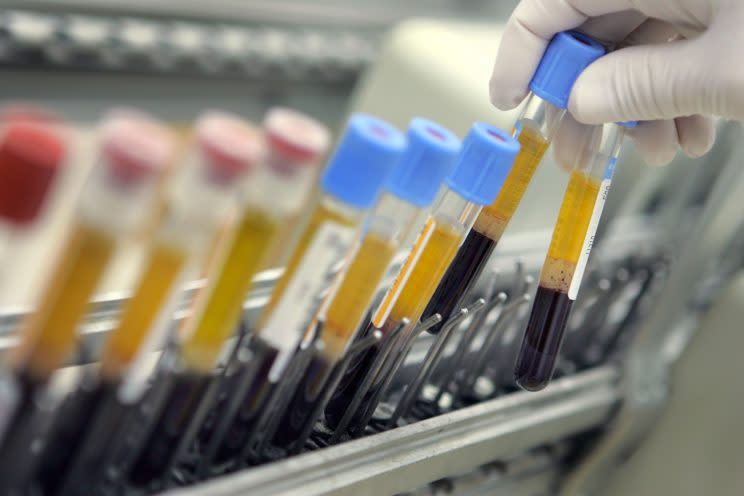DNA delivery: Personalized meals based on your blood proposed by startup

In a world where it is becoming increasingly more common to get genetic testing for a variety of reasons, from estimating your future risk of disease to helping doctors come up with the right treatment plans, it is no surprise that a U.S. startup is hoping to apply the technology to a new field: nutrition.
Habit, which plans to launch early next year, says it will utilize a team of food scientists, dietitians, chefs and other experts who will analyze customers’ DNA data, create tailored meal plans, whip up the food “your body craves” and deliver it to your door.
“We’re at the beginning of a new era in nutrition – personalized nutrition, based on science, enabled by big data and computation mathematics that will change the way we eat forever,” Leroy Hood, a science advisor for the startup and co-founder of the Institute for Systems Biology — a non-profit biomedical research group based out of Seattle, said in a press release.
“Habit is combining decades of research on systems biology into the most complete view possible of your body’s specific nutritional needs and tolerances.”
Habit says its home test kits will analyze customers’ blood based on more 60 different biomarkers, their genetic variations and how they those biomarkers respond to “proprietary metabolic challenge beverage.”
What this means is that customers will be asked give finger-prick samples before and after consuming a drink that is designed to run their body through the bacon-fat and sugar-slicked test course that is the average American diet.
Habit will also collect several other body metrics including weight, height and waist circumference.
And certified coaches will be offered to help customers attain their health goals via their genetically-tailored food plans.
“Unlike generic, one-size-fits-all eating fads, which may work for one person but not another, Habit develops nutrition recommendations based on an individual’s unique biology, metabolism and personal goals,” said the company’s press release.
“Habit takes the guesswork and confusion out of what to eat by creating a personal nutrition blueprint for each individual, then it helps one reach their health goals by delivering fresh, personalized meals to one’s doorstep and supporting through one-on-one wellness and nutrition coaching.”
The company’s test kit will cost about $400, with meals expected to be $16 and $20 each.
The founder and CEO of Habit, Neil Grimmer, said in a statement that he was inspired to create the personalized-food service after he went through a period where he “lost sight” of his health put on 50 pounds and ended up overeating, not sleeping enough, “mega” dosing on caffeine and didn’t get enough exercise.
“Something had to change or I was going to wind up in the hospital,” he reflected.
So Grimmer met with physcians and nutritionists and got genetic tests and blood work.
And he said it turned out that his body has difficulties processing sugars, high-starch foods, fats and refined carbohydrates. The four “mega-cups” of coffee he was drinking were also a problem as the results showed his body is slow to metabolize caffeine.
Grimmer said since employing a new diet he has lost 25 pounds.
“I had been transformed, but it wasn’t some magic cure or quack diet, it was via a highly personalized method that made sense, with food at the centre and my body and science as the guides,” he said.
And Campbell’s Soup Co. seems to be buying Grimmer’s approach.
The food giant invested in the Silicon Valley startup to the tune of nearly $43 million.
But Habit isn’t the only startup hoping to capitalize on the growing food-kit delivery market. The burgeoning industry has attracted more than $800 million in venture capital.
However, many companies have found it hard to find customers who are willing to gut it out, with 90 per cent dropping out six months after they signed up.

 Yahoo Finance
Yahoo Finance 
